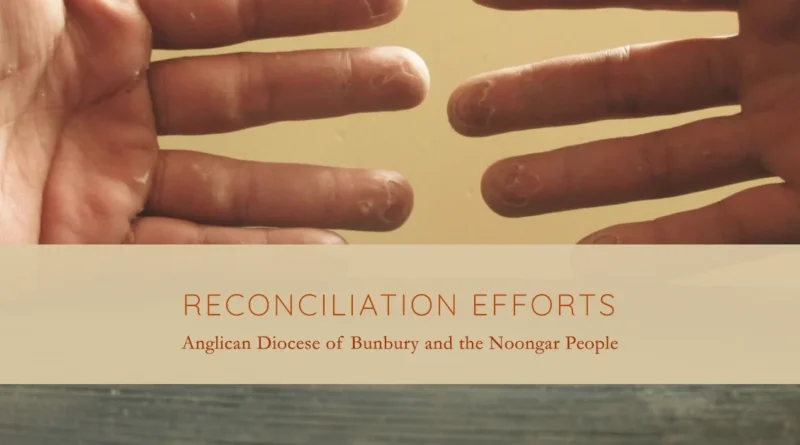Reconciliation Efforts: Anglican Diocese of Bunbury and the Noongar People
The Anglican Diocese of Bunbury in Western Australia has taken a significant step toward reconciliation with the Noongar people, an Indigenous community in the region. This endeavor involves acknowledging historical injustices, offering formal apologies, and working towards building stronger relationships with the Indigenous community.
In this blog post, we will delve into the details of these reconciliation efforts, exploring the significance of these actions and their implications for both the Anglican Church and the Noongar people.
Understanding the Noongar People
Before delving into the reconciliation efforts, it’s essential to understand who the Noongar people are and their historical significance in Western Australia. The Noongar are Indigenous Australians who have lived in the southwestern part of Western Australia for thousands of years. They have a rich cultural heritage and a deep connection to the land.
Apologies by the Anglican Bishop of Bunbury
One of the central elements of the reconciliation efforts is the formal apologies issued by the Anglican Bishop of Bunbury. These apologies acknowledge the church’s historical involvement in events that have had a detrimental impact on the Noongar people. Let’s take a closer look at the apologies:
1. Apology for Historical Injustices
The Anglican Bishop of Bunbury issued a formal apology to the Noongar people, acknowledging that Anglicans likely took part in “shameful” historical events. This apology recognizes the role that the church played in events that had a negative impact on Indigenous communities.
2. Failure to Challenge Unjust Policies
In addition to acknowledging historical injustices, the Anglican Church expressed regret for its failure to challenge unjust government policies towards Aboriginal people. This acknowledgment highlights the importance of not only recognizing past wrongs but also reflecting on the church’s role in addressing contemporary issues affecting Indigenous communities.
A Series of Public Apologies
The apologies issued by the Anglican Bishop of Bunbury mark the beginning of a series of public apologies by the Anglican Church. These apologies are a significant step toward reconciliation and demonstrate the church’s commitment to acknowledging historical responsibilities for the treatment of Indigenous Australians.
Significance of Reconciliation
The reconciliation efforts between the Anglican Diocese of Bunbury and the Noongar people hold immense significance on multiple fronts:
1. Acknowledging Historical Wrongs
Reconciliation involves acknowledging historical wrongs and injustices, which is a crucial step toward healing and moving forward. By recognizing the church’s involvement in past events, the Anglican Diocese of Bunbury is taking responsibility for its actions.
2. Strengthening Relationships
Reconciliation efforts aim to build stronger, more equitable relationships between the church and Indigenous communities. These efforts signify a commitment to working together, learning from the past, and fostering mutual respect.
3. Healing and Restoration
For the Noongar people, reconciliation offers an opportunity for healing and restoration. It acknowledges the pain and suffering caused by historical events and opens the door to a more positive future.
4. National Reconciliation
These efforts are part of a broader movement of reconciliation and healing between the Anglican Church and Indigenous groups across Australia. The goal is to create a more inclusive and just society where the rights and dignity of all people, including Indigenous Australians, are respected and upheld.
The Journey Ahead
Reconciliation is an ongoing process, and it involves more than just words—it requires action and commitment. The journey ahead for the Anglican Diocese of Bunbury and the Noongar people involves:
1. Continuing Dialogue
Open and respectful dialogue between the church and the Indigenous community is essential. It allows for the exchange of perspectives, concerns, and ideas for the future.
2. Education and Awareness
Raising awareness about the history and culture of the Noongar people is crucial. Education plays a vital role in dispelling stereotypes and fostering understanding.
3. Community Involvement
Engaging the broader community in reconciliation efforts is vital. It creates a sense of collective responsibility for building a more inclusive society.
4. Practical Initiatives
Reconciliation involves practical initiatives, such as supporting Indigenous-led projects, addressing social issues, and promoting economic opportunities within Indigenous communities.
| Date | Apology Issued | Significance |
| August 2023 | Formal apology for historical injustices | A formal apology for historical injustices |
| August 2023 | Apology for failing to challenge unjust policies | Recognition of the need to address contemporary issues |
| Ongoing | Series of public apologies | Commitment to reconciliation and mutual respect |
Conclusion
The reconciliation efforts between the Anglican Diocese of Bunbury and the Noongar people are a significant step toward healing, understanding, and building stronger relationships. These efforts reflect a broader movement of reconciliation across Australia and signify a commitment to acknowledging historical wrongs and working together for a more inclusive and just society.
As the journey toward reconciliation continues, it is essential to remember that actions speak louder than words. Practical initiatives, ongoing dialogue, education, and community involvement are key components of this transformative process.




